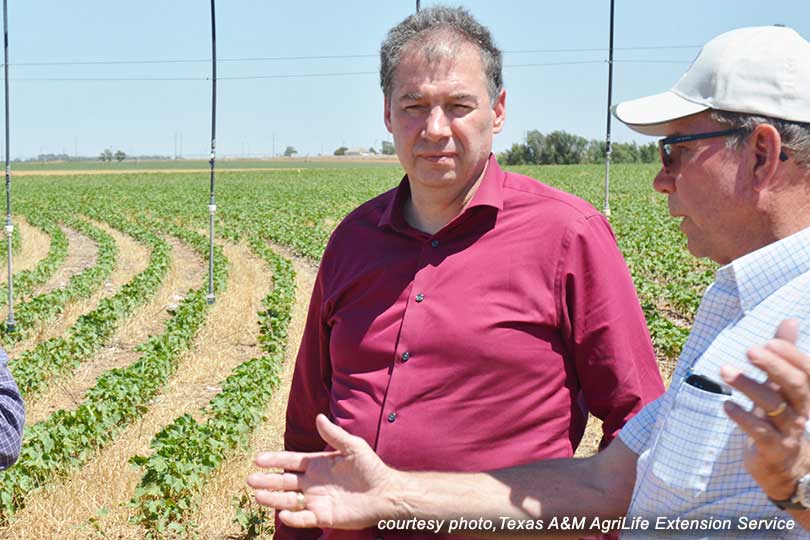By Jennifer Dorsett
Field Editor
Many consumers are disconnected from agriculture and how it plays a part in their lives, but Texas A&M University’s new vice chancellor for Agriculture and Life Sciences wants to bridge that gap.
Dr. Patrick Stover, who is also Texas A&M AgriLife Research’s acting director in College Station, aims to reconnect people with agriculture’s role in human health and well-being.
As part of that effort, Stover toured several Texas A&M System facilities across the Panhandle, visiting with employees and agricultural leaders about his plans.
“What we need to understand across the board: if we want better agriculture and an appreciation of agriculture, we have to be able to demonstrate to people how food is produced and how food really promotes their health and well-being,” he told AgriLife Today.
Stover wants to create evidence-based data tying food choices to health outcomes that will assist consumers in creating better dietary habits. He said a system like this does not currently exist.
Demographics used in current data collection are flawed, Stover said, because they assume a normal that doesn’t truly exist, resulting in inaccurate data.
“There is no average person,” he said. “Individuals respond differently to diets, and it is modified by all sorts of factors. We have to understand individuals and where they are in their stage of life.”
Texas is an ideal location for this research, Stover said, due to the state’s agricultural diversity, as well as a population with public health issues.
Stover’s plan includes a three-part approach—“responsive agriculture” or listening to the needs of farmers and ranchers, focusing on individual plants and animals and collecting large quantities of data. He said these factors can be used to bring farmers and ranchers into the conversations about health and general well-being, which will ultimately benefit all involved.
“As Texas becomes increasingly urban, we need to be sure people appreciate the value of food in their lives,” Stover said. “We need a way to ensure that all Texans, whether they are urban or rural, have a firm appreciation of the role of agriculture in their life.”

